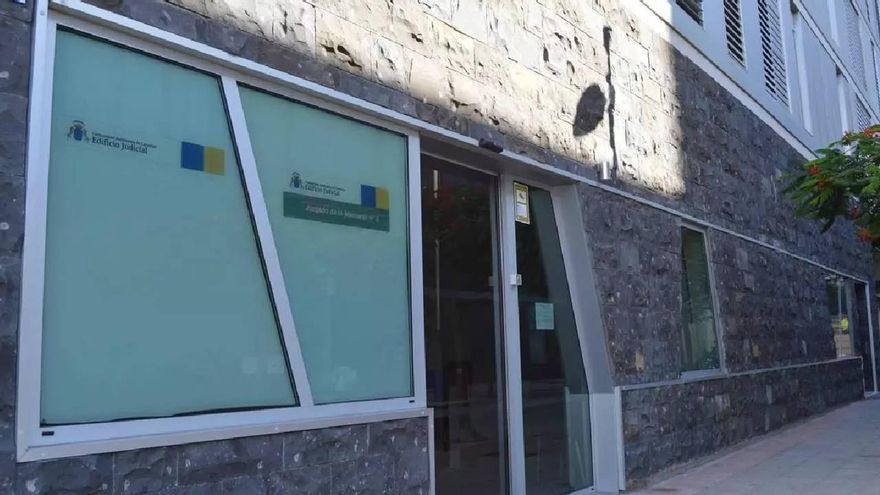
A businessman experienced about five years of uncertainty following the bankruptcy of his trading company. A company dedicated to the telecommunications and mobile phone sector. The business did not go as expected and ended up closing with an insurmountable debt. The company, formed by two partners, was dissolved, but the debts had to be settled. At that point, each decided to go their way to meet their obligations. One of them, Cristo Manuel A. G., represented by the law firm Munguía y Asociados, has achieved a definitive exemption from his debt of a total amount of 174,816.76 euros to an individual debtor, as reflected in the now final decision issued by the Commercial Court number 2 of Santa Cruz de Tenerife.
This judicial decision represents one of the highest amounts exempted that a court has granted in the Autonomous Community of the Canary Islands, according to previous resolutions adopted by Canarian courts under the legislation inspired by the spirit of the so-called Second Chance Law.
Amounts Exempted
In this regard, it stands out that the regional average of amounts exempted for individuals and self-employed persons in the last two years ranges between 30,000 and 60,000 euros, so this particular resolution is far above the said average of exemptions granted in 2023 and 2024. During the 2023 fiscal year, the average amount of unpaid liabilities forgiven by the courts was 42,000 euros, which is 312% above that average.
Regarding resolutions of this same type granted by commercial courts of the Archipelago throughout 2024, this decision is also significantly higher. In this sense, there was a debt forgiveness of 89,000 euros following a ruling from a Commercial Court in the province of Las Palmas (June 2024) or a previous one, of 103,000 euros, this time ratified by a court in the province of Santa Cruz de Tenerife in March 2024, or the 128,000 euros that the same Commercial Court number 2 of Santa Cruz de Tenerife exempted for a woman who over-indebted herself.
But let’s go back to the background of this case. The process began after the declaration of insolvency of the company of which Cristo Manuel A. G. was a part in July 2023. Since no creditor requested the appointment of an insolvency administrator, the debtor could request the exemption under Article 486.2 of the Consolidated Text of the Insolvency Law (TRLC) of 2022. The judge also based her decision on confirming that Cristo Manuel A. G. met all the requirements and did not fall under any of the prohibitions mentioned in the said law.
It is also important to highlight that, despite the high total amount, the decision expressly excluded debts with the Canary Islands Tax Agency. These debts were not exempted for not meeting other requirements, specifically because their revenue management is not entrusted to the State Tax Administration Agency (AEAT).
This case is a clear example of the spirit of “second chance” that the legislation promotes, allowing individuals with significant over-indebtedness problems to reintegrate into normal economic life. The decision reaffirms the consolidation of this mechanism in Spain as an effective tool, even for extraordinarily high amounts.
Insolvency Without Assets
The decision was favorable to the debtor mainly because the exemption of unpaid liabilities was requested within the framework of an insolvency without assets, that is, a procedure where there are not enough goods or assets in the declared company or person to satisfy debts with creditors.
This was possible because, once the insolvency was declared, the legal deadline passed without any creditor requesting the appointment of an insolvency administrator. Additionally, once the exemption request was submitted by the debtor, no allegations or opposition were made by the creditors within the set period.
Despite the lack of opposition, the judge was legally obliged to verify the concurrence of the conditions and requirements for the exemption. The fundamental reason for granting it was that the documentation of the procedure did not reveal any circumstances that, by law, would prevent obtaining the exemption. These negative circumstances include convictions for certain crimes, severe administrative sanctions, being declared guilty in the insolvency (with some exception), being affected in the guilty classification of a third party, failure to fulfill duties of collaboration, or providing false or reckless information when incurring debt.
With the fulfillment of the formal requirements (application, lack of opposition after the deadline) and, crucially, with none of the prohibitions or exceptions established in the law being met, the exemption of the unpaid liabilities was granted.
Subscribe to keep reading















